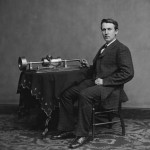Maybe you have an idea or concept, created a work of art, written a book, have knowledge no one else does or invented an item. What, when, why and how should your work or knowledge be protected? The answer is not always clear and requires the ability to understand the commercial value of your innovation and knowledge of what is protectable and what is not protectable.

Understanding the Commercial Value Commercial value is determined by ascertaining what the market will pay you now or later for your innovation or products. Several factors influence the commercial value of potential Intellectual Property(IP).
They include but are not limited to:
- How useful is your idea? – This is the heart of patent decisions as in order to qualify for a patent your idea must have Utility (usefulness).
- What applications can it be used for? – You may have had one particular market in mind, but where else could the knowledge/technology be applied?
- Is it a new idea or product? – Another intellectual property requirement. Being new (novel) is a patent necessity.
- What is the cost of development through commercialization? – How long will it take to recover costs
- What is the market (general, niche)? – The broader the market the better chance commercialization.
Is Your Potential Intellectual Property Protectable?
Filing for a Patent, Copyright or Trademark does not mean that your Intellectual Property is safe and secure. It simply gives you a right to pursue a claim against infringement. Pursuing infringement claims can and will bankrupt most entrepreneurs as it may cost millions to stop infringement and even more to obtain (collect) monetary damages.
Questions that you should ask yourself and that will be asked by potential investors, licensees, technology transfer centers and business incubators include:
- Ability to detect infringement – can your technology be embedded into something else making it hard to detect infringement?
- Ability to reverse engineer – how easy is it for someone else to come up with?
- Breadth of claims – what you are claiming rights to?
- International considerations – not all countries adhere to US patent laws, will you need to file for international patent protection (this can be very expensive)?
- Ability to withstand litigation – you may be sued if someone challenges your claim.
Innovators and entrepreneurs need to be careful before rushing out to file a patent, copyright or trademark. Sites such as USPTO can provide valuable information on how to file and a great description of what is covered. However, they do not evaluate the commercial potential nor can they tell if you should file for protection.
At The Entrepreneur’s Advisor™ we can help you:
- Evaluate the commercial potential of your ideas including new market determination.
- Determine the feasibility of patent, trademark or copyright protection.
- Analyze the technology strength of your innovation.
- Suggest and development strategies to pursue the opportunities to start a new venture, license, develop or sell.
- Stop you from wasting valuable start-up capital on patent attorneys and other business start-up costs.
Contact us today to determine your path.
Associated articles include:
Licensing Basics The Value of Invention – Part II
The Value of Invention – Part I
Licensing of Intellectual Property for Entrepreneurs Seeking to Raise Capital

I couldn’t agree more. I see so many folks just run out and do stuff (“file a patent application, file a trademark application”) without thinking about the consequences. The only people who benefit from this are the lawyers who do the work, and even though I am a lawyer I think that the far better approach is to make sure that questions like these are asked up front. Quite often the answers lead everyone in a different direction.
Hi Paul,
Thank you for your input.
After re-reading the article, I want to make people do not misunderstand me. If the decision is to file for patent or other IP protection then I would strongly advise them to seek a professional IP attorney who is willing to provide references. They do however ,want to avoid the patent factories (attorney or patent agents who apply a cookie cutter approach to filing).
Incomplete or incorrect applications only delay the process and sometimes result in a denial of protection.
Stuart